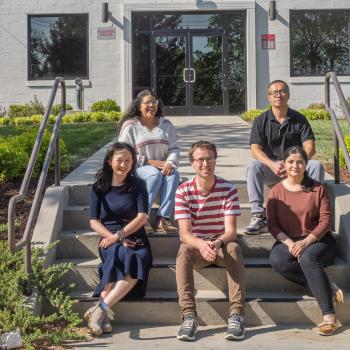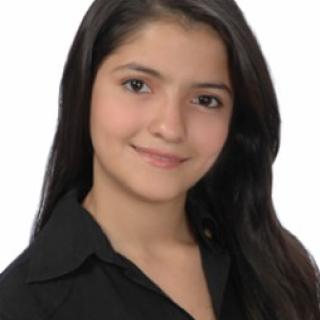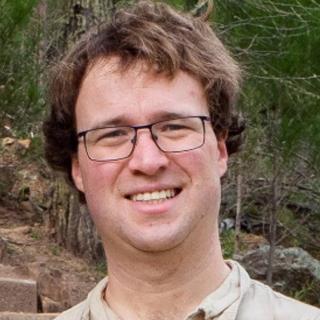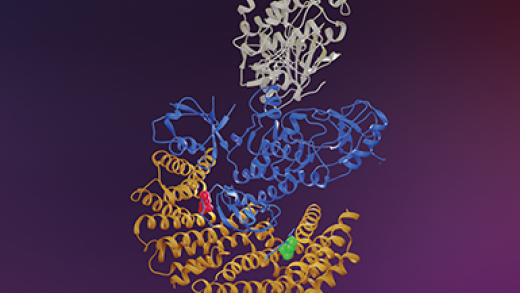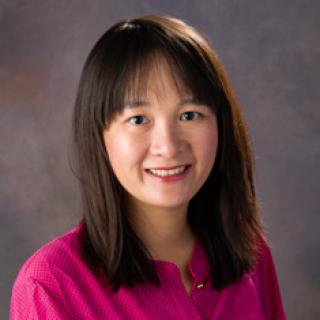
Ping Zhang, Ph.D.
- Center for Cancer Research
- National Cancer Institute
- Bldg. 538, Room 118
- Frederick, MD 21701
- 301-228-4092
- ping.zhang@nih.gov
RESEARCH SUMMARY
Dr. Zhang is a structural biologist investigating the molecular mechanisms the of kinase signaling complexes in human health and disease states. Her laboratory applies cryo-electron microscopy (cryo-EM), X-ray crystallography, and various biochemical and biophysical approaches to uncover the structure and regulation of biological kinase assemblies. Her research has provided structural and molecular mechanisms of a protein kinase A (PKA) fusion J-PKAcα that drives Fibrolamellar hepatocellular carcinoma. Moreover, her recent work has shed light on the structural aspects of how RAS binding facilitates the transition of the full-length BRAF monomer to a dimeric form. Ongoing research in her lab is further focused on understanding the structure and mechanisms of leucine-rich repeat kinases. Dr. Zhang’s research program aims to provide fundamental scientific knowledge that can ultimately contribute to the development of new therapeutic strategies.
Areas of Expertise

Ping Zhang, Ph.D.
Research
We are a basic research laboratory that studies the structural and functional basis of protein kinase signaling. Protein kinases regulate almost every aspect of cellular function through phosphorylation of their substrates. Kinase signaling systems function as multi-domain and multi-component entities to achieve precise regulation of biological processes, and they are frequently deregulated in human diseases. The goal of my research program centers on revealing the molecular mechanisms of kinase signaling complexes that are linked to human cancers and other diseases, with a long-term goal of developing new therapeutic strategies. Our current research objectives focus on an oncogenic PKA fusion J-PKAcα, the RAF family kinases, and the leucine rich repeat kinases (LRRKs). Toward our goals, we use interdisciplinary biochemical and structural approaches, including X-ray crystallography and cryo-electron microscopy (cryo-EM), to decipher the structure and function relationships of these challenging kinase complex systems. We also form multidisciplinary collaborations with cell biologists and medicinal chemists. We are interested in revealing the mechanistic details and factors critical for driving the functional activities of these kinase complexes and how these activities may be altered in pathological states. Overall, we aim to contribute to understanding fundamental principles of kinase biology.
Oncogenic kinase fusion proteins represent an important class of cancer drivers. Fibrolamellar hepatocellular carcinoma (FLHCC) is a rare liver cancer that predominantly affects adolescent and young adults with no history of liver diseases. It is driven by J-PKAcα, which is a kinase fusion chimera of the J-domain of heat shock co-chaperone DNAJB1 with PKAcα, the catalytic subunit of PKA, which has been used as a model system for the kinase family for the last 40 years. We determined the chimeric RIα2:J-PKAcα2 complex, the first for chimeric PKA holoenzymes, and its wild-type counterpart RIα2:PKAcα2 holoenzyme. Subsequent work has revealed mechanistic insights with respect to the RIα chimeric and wild-type holoenzyme conformations. Their biological relevance has been derived from analysis of these structures together with biochemical and biophysical data. We continue to study the impact of J-domain fusion of PKA complex structures and regulation. Using the structural knowledge we have gained, we are further developing inhibitor compounds directed against this fatal pediatric cancer driver J-PKAcα for FLHCC. Additionally, our studies of J-PKAcα could provide a model for exploring the pathways of oncogenic kinase fusion transformation in other cancers.
The RAF kinases are key intermediates in the Ras signaling pathway, and they themselves are prominent drivers of human cancer. Elucidating the molecular mechanisms that regulate RAF signaling and identifying strategies to disrupt signal transmission in human disease states is a major scientific challenge. We determined cryo-EM structures of full-length BRAF complexes derived from mammalian cells: autoinhibited, monomeric BRAF:14-3-32:MEK and BRAF:14-3-32 complexes, and an inhibitor-bound, dimeric BRAF2:14-3-32 complex. These results, together with structure based mutational data, provide insights regarding how RAS binding facilitates the BRAF monomer to dimer transition. We continue to further elucidate the structural and regulatory differences between individual members of the RAF kinase family, with a long-term view of understanding the regulation of this key oncogenic pathway.
A main focus in my group is the structure and regulation of the leucine-rich repeat kinase LRRK1 and LRRK2. They are large multi-domain proteins containing two putative catalytic domains, a GTPase ROCO domain and a kinase domain, in addition to armadillo, ankyrin, leucin rich and WD40 domains. LRRK1 is slightly smaller than LRRK2 due to the lack of an N-terminal armadillo repeat domain. Despite similar domain organizations, LRRK1 and LRRK2 have distinct interactomes and distinct physiological functions. Mutations in LRRK2 that enhance kinase activity are a major genetic contributor to inherited Parkinson’s disease (PD). Patients with the most common LRRK2 mutation can also have an overall increased risk of several cancers. Interestingly, LRRK1 has not been shown to associate with PD or cancer, but instead has an important role in bone biology. The current understanding of LRRK1 and LRRK2 will be greatly enhanced by revealing molecular mechanisms of their different functional states. The long-term goal of our studies is to gain a better understanding of how these large multi-domain kinases affect human health. Our ongoing studies are aimed at obtaining a comprehensive understanding of the inactive state of the LRRKs and their activation by revealing the structures and molecular mechanisms of full-length LRRK1 and LRRK2, both alone and in complex with regulatory proteins or substrates, such as the 14-3-3 proteins and the Rab small GTPases. Broadly, our goal is to gain a better understanding of how the LRRK proteins function in health and disease states, with an extended vision of developing therapeutic strategies to target this pathway.
Publications
Structures of the PKA RIα Holoenzyme with the FLHCC Driver J-PKAcα or Wild-Type PKAcα
Atomic Resolution cryo-EM Structure of a Native-Like CENP-A Nucleosome Aided by an Antibody Fragment
Biography
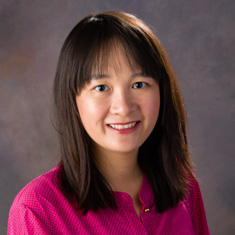
Ping Zhang, Ph.D.
Dr. Zhang received her Ph.D. training in Dr. Michael Rossmann’s lab at Purdue University in the field of biochemistry and structural virology. Her Ph.D. project was resolving the structures of poliovirus-receptor complexes using X-ray crystallography and cryo-electron microscopy (cryo-EM). She completed her postdoctoral training in Dr. Susan Taylor’s laboratory at UCSD, working on protein kinase PKA signaling system. She joined the Structural Biophysics Laboratory at NCI as a Stadtman Tenure Track Investigator in 2016.
Job Vacancies
We have no open positions in our group at this time, please check back later.
To see all available positions at CCR, take a look at our Careers page. You can also subscribe to receive CCR's latest job and training opportunities in your inbox.
